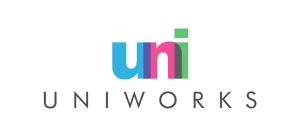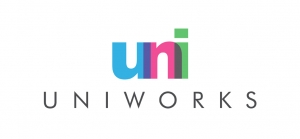Our process is simple
Our aim is to give you the best service as swiftly as possible. To help us do so, please take a look at our FAQs and then send us your request.
General questions
Q: How do I get a quote?
A: Call or email us to find out how we can help. If it’s a translation or edit, send us the text. If it’s copywriting, coaching or training, send us a brief of what exactly you need. Let us know if you already have a deadline. We’ll then reply with a quote within 24 hours (during the week).
Q: Do I need to contact you in English?
A: No, we speak fluent German and English (and French if required!)
Q: How soon will my work be finished?
A: We always get the job done on time. Exactly how long it takes depends on how much work is involved. Our standard turnaround time is ca. 1,000 words per day for translation. Still, we are only human: for larger projects with short deadlines, we will coordinate a small team of translators or editors to work in parallel.
Q: Can I have work done urgently, i.e. same day or overnight?
A: Of course! We understand that communication often needs to be instant. Please note that urgent requests are subject to a surcharge of 25% or 50% depending on how short the turnaround time is. If you can plan ahead, we can agree a fast turnaround without the surcharge.
Q: How do you guarantee quality and consistency?
A: As a boutique agency, we rely on word-of-mouth recommendations. Our commitment to our clients is personal. We assign your project to the team member with the best skills for your particular topic. Each translation, edited text or new creation is also checked by an editor to assure quality. Our translators translate exclusively into their native language, and our editors and copywriters work exclusively with texts in their native language.
Q: What file type should I send?
A: Ideally, an editable file such as Word, Excel, PowerPoint. This is easiest for estimating costs and working with the texts. We also regularly work with PDF files, either directly or converted into a text file.
Q: Do I already need to have the final version for a quote?
A: Not at all. We just need an idea of the volume and type of task to send a provisional quote. The final invoice will naturally be based on the version sent for translation or editing.
Questions on editing
Q: How much does an edit cost?
A: We charge by the hour for editing. Once we’ve received your text, we assess it in terms of the topic and scope of the project. Then we’ll send you a quote stating the hourly rate and an estimate of how long the work will take.
Q: How does the process work?
A: Our aim is to produce the best possible version of your text but there are different levels of edit: With a surface edit, we make sure that the language is grammatically and stylistically correct (and compliant with corporate style guides). If required, we can dive deeper and advise on restructuring and reformulating your text to achieve the optimal impact.
Q: Can I see what changes you make?
A: Yes, always. In Word files, we use “track changes”. In Excel and PowerPoint, we can highlight changes in colour. We edit PDFs using Adobe Acrobat.
Q: If I have a text in English and I want to suggest changes, can I also formulate these in German (or French)?
A: Yes, this is actually the ideal process. Sometimes, we’re just not sure how to express a specific idea, or perhaps we can’t find le mot juste. This helps us to express exactly what you want to say.
Q: Do you edit academic papers or even larger works, such as doctoral dissertations?
A: Yes, we have had great success with clients who have had their papers published in leading journals after our language edit. We have also edited doctoral and habilitation theses to provide the polish needed for final publication.
Questions on translation
Q: What languages do you work with?
A: We mainly translate into and out of English and German. However, our network of trusted translators also allows us to cover almost any language. We regularly have translations into French, Mandarin, Portuguese, Spanish and Japanese, for example.
Q: How much does a translation cost?
A: It depends on the language combination, subject matter and deadline. Translations are generally charged by standard line or by word. To receive a non-binding quote, simply send us your text and details of your requirements, and we’ll get back to you as soon as possible.
Q: How does the process work?
A: The translator best suited to your specific topic translates the text. A second translator or editor then checks the translation to ensure that everything is as it should be. We may contact you with questions during the translation process if we need clarification on any part of the text.
Q: Do you offer certified translations?
A: Yes, through partnerships with trusted certified translators. Please note that certification is subject to an additional charge on top of the translation itself. To comply with the regulations governing official translations, these generally need to be sent by post.
Q: If I have several similar texts translated, do I always have to pay for the complete translation?
A: No, we will agree a charge by time for adapting an existing translation. Some of our translators use Translation Memory Software but even without this tool, we are expert at adapting previously translated texts for consistency and efficiency.
Q: Do you use machine translation?
A: Absolutely not. Machine translation has its place when on holiday, for example, or to get a general idea of what a text is about but it doesn’t have the skill and knowledge of a trained linguist. We pride ourselves on our handicraft and on knowing the particular preferences of each client.
Q: Do you translate into American and British English?
A: Yes, this is one of the first questions we ask new clients. All of our translators can translate into American or British English as preferred. We also easily adapt existing texts to the other variety, for example if a journal requires a specific variety of English.
Questions on copywriting
Q: How much does copywriting cost?
A: We charge by the hour for standard copywriting. Once you have briefed us, we’ll prepare a quote that states the hourly rate and an estimate of how long the work will take. This quote will usually include an agreed number of review cycles.
Q: How does the process work?
A: You brief us on what you need and send us any existing input that we should include. We then write the text according to your requirements and deliver a draft. If any changes are needed, we can discuss these in a follow-up email, meeting or call. It is not unusual for a text to undergo one or two review cycles to reach the perfect result.
Q: Do you offer creative copywriting, such as slogan writing or product naming?
A: Yes, we love creative copywriting. This process generally requires closer interaction with the client. Rates are higher for developing unique communications to reflect the high value they add.
Q: Can the brief be in German?
A: Of course. The main aim is that we understand what you would like to express and the message that you want your target audience to understand and react to.
Questions on coaching
Q: What is the difference between coaching and training?
A: Coaching generally involves 1-to-1 sessions to improve a particular skill or aspect of your work with a close individual focus. Training, by contrast, is for small groups to learn something new or practise an aspect of using English in a professional context. Usually, our coaching is designed to provide more confidence in spoken English: This might be preparing to give an important presentation, practising a job interview or hosting a booth at a trade fair, for example. We also offer coaching to improve your written English if you have a specific need, such as communicating with colleagues.
Q: How much does coaching cost?
A: We charge by the hour for coaching. The first session in which we identify your needs is free of charge. Usually, you then agree a certain number of sessions with your coach.
Q: How does the process work?
A: Get in touch with us to discuss your needs. Once we have defined the specific goal you would like to achieve, we will agree a number of sessions at a time and place that suits you best.
Q: Do you offer coaching in English and German?
A: At present, we only offer coaching in English. We have access to a network of German coaches, so please contact us with your particular request and we will aim to find a suitable coach for you.
Questions on training
Q: How much does training cost?
A: We charge by the hour for training. Preparation of training materials is also charged by the hour but at a different rate than the actual live training session.
Q: How does the process work?
A: Get in touch with us to discuss your needs. Once we have meet with you to identify your training needs, we will develop a concept and learning materials for your group.
Q: What is the maximum group size?
A: Ideal group sizes are those divisible by 2, 3 or 4 to facilitate group work. Depending on the topic and the goals of the training session, a group may range from just 4 participants up to 20 or 30. Training is most effective when the trainer has the time to interact directly with each participant during group work.
Q: What is the difference between training and coaching?
A: Training generally tends to be for small groups to learn something new or practice an aspect of using English. Coaching, by contrast, usually involves 1-to-1 sessions to improve a particular skill or aspect of your work with a close individual focus. One or more training sessions may be used to help researchers improve their abstract writing, for instance, or to help employees master certain aspects of style in their English communications, for example using a brand voice.
Q: Do you conduct training in English and German?
A: At present, we only offer training in English. We have access to a network of German trainers, so please contact us with your particular request and we will aim to find a suitable trainer for you.
Questions on voiceover
Q: How much does voiceover work cost?
A: We charge by the hour for voiceover work. Often the texts to be spoken require a native check of the language. This is also charged by the hour but at a lower rate than the actual live recording session. Since our speakers are highly experienced, the actual recording session is generally short.
Q: How does the process work?
A: Send us your enquiry, ideally with details of the text to be spoken, the target audience, and the channels/media it will be used on. We’ll send a quote and arrange a date for the recording session.
Q: Which languages do you offer voiceovers in?
A: At present, we only provide English or German native speakers.
Q: Can I specify that I need a female or male speaker, or even more than one?
A: Yes, certainly. We endeavour to make every project possible depending on timing and availability.
Questions on subtitling
Q: How much do subtitles cost?
A: Subtitling is generally a two-stage process: translation of the original transcript and then technical integration of the subtitles into the video file. If you have a written transcript, then we charge translation by the number of characters or words. If we need to translate directly from the video file, then this will be by the hour. Integration of the subtitles is also charged by the hour.
Q: How does the process work?
A: Send us your video file or written transcript. Experience has shown that the translation actually provides a valuable accuracy check of the original spoken word. Spoken language naturally includes pauses, errors, and self-correction. The purpose of the subtitles, however, is to allow the reader to understand the key content and not to translate every “um” and “ah”.
Q: Which languages do you offer subtitling in?


